Central African Republic
Voting has began in the Central African Republic on Sunday, February 14, in elections seen as a crucial step towards restoring democratic rule and ending years of violence that have left the impoverished nation split along religious faultlines.
Two former prime ministers, Faustin-Archange Touadera and Anicet-Georges Dologuele, are contesting the presidential run-off while authorities attempt to re-run a first round of legislative polls which were cancelled over irregularities.
“I hope we’ll finish with these problems once and for all, and we’ll have a good laugh in the end,” said Parfait Gbokou, 30, who was among the first to cast his vote after polls opened at 6 a.m. (0500 GMT) at a primary school in the centre of the capital, Bangui.
Elsewhere, the vote got off to a slower start with delays as poll workers set up voting booths and ballot boxes. Polls are due to close at 4 p.m. local time.
Central African Republic, one of the world’s most unstable countries, was plunged into the worst crisis in its history in early 2013, when mainly Muslim Seleka fighters toppled President Francois Bozize.
Christian militias responded to Seleka abuses, attacking the Muslim minority community. Thousands have died in the bloodshed, and one in five Central Africans has fled, either internally or abroad.
A turnout of nearly 80 percent for a first round of voting in December was largely viewed as a popular rejection of the violence, which has left the northeast under the control of Muslim rebels while Christian militias roam the southwest.
Both Dologuele, a banker, and trained mathematics professor Touadera have made the restoration of peace and security the centrepiece of their presidential campaigns. Both candidates are Christians.
Touadera has portrayed himself as an anti-corruption stalwart, while Dologuele pledges to revive the economy and draw in investors hesitant until now to exploit significant gold, diamond and uranium deposits.
However, while the polls should re-establish democracy after three years of unpopular interim administrations, observers warn against setting expectations too high.
Whoever wins the presidency will face the daunting tasks of extending state authority outside the capital, rebuilding the army, breathing life into a moribund economy and restoring a semblance of security in a nation awash with guns.




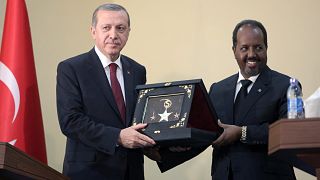
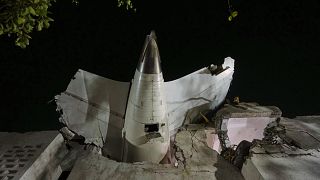

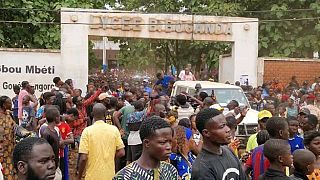
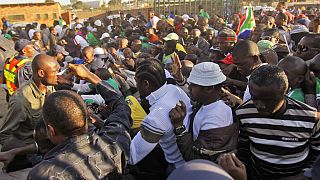
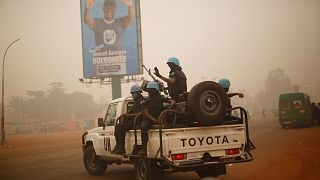
02:35
Central African Republic's major rebel groups to disarm, dissolve
01:08
Dancehall superstar Shatta Wale urges young people to back President Mahama
01:09
Guinea presents draft for new constitution, referendum set for September
01:06
Nigeria scraps controversial bill making voting mandatory
01:02
Tidjane Thiam Confirmed as PDCI President by Ivorian Court
Go to video
Robert Francis Prevost, who has taken the name Leo XIV, elected new pope